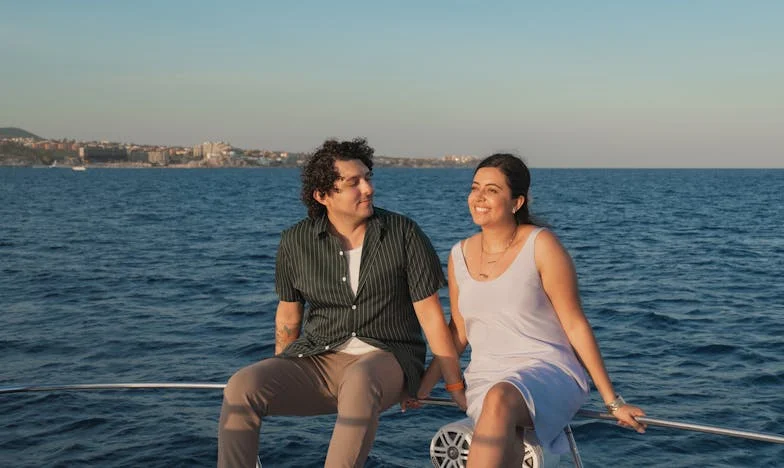Shadows in the Summer: A Father’s Reckoning
“Don’t hurt me. I’m not guilty,” I whispered, pressing myself against the faded kitchen wall as my father’s voice thundered across the room. My hands trembled, sticky with sweat, as June’s heat pressed in through the broken window. Dad’s shadow loomed over me, his breath thick with whiskey and regret.
“Why are you so scared? I’m not gonna hurt you!” he slurred, stumbling backward, his scared blue eyes darting between me and the battered back door. For a moment, I saw a flicker of the man I used to admire, not the broken figure clutching a bottle like a lifeline.
Just twelve hours earlier, it was supposed to be a fresh start. The first of June had arrived with the promise of summer. My wife, Maggie, our seven-year-old daughter, Zoe, and I packed up our Honda Civic at dawn, desperate to leave behind the city’s choking dust and endless noise. We headed north to the farmhouse where I’d grown up—Dad’s place—hoping, naively, that the country air could mend what years of silence and buried anger had torn apart.
I remember Maggie’s hopeful smile as we passed the old water tower, Zoe humming along to Taylor Swift in the backseat, and the fields rolling past in a blur of green and gold. “It’ll be good for Zoe to know her grandpa,” Maggie had insisted, squeezing my hand. “And for you, too.”
When we pulled up, Dad was already outside, sitting on the porch with his dog, Scout, and a sweating can of Coors. He looked smaller than I remembered, his hands shaking as he waved. “Well, look who finally decided to visit,” he called, trying for a joke, but his voice cracked in the thick air.
The first hours passed in a strange peace. Zoe chased fireflies through the overgrown grass, her laughter echoing off the barn. Dad and Maggie swapped stories in the kitchen while I fixed the old swing. For a moment, I let myself believe that the past could stay buried, that the shouting and slammed doors of my childhood were nothing more than a bad dream.
But as dusk fell and the cicadas started their chorus, old wounds reopened. Dad poured himself another drink and cornered me in the kitchen, his words slurring, “You just left, Sam. Ten years—you never called.”
I felt the old anger flare. “You never gave me a reason to stay. You drove Mom away and then blamed me for it.”
His face twisted, a storm of pain and resentment. “You don’t know what it was like. She—” His sentence died in the air. He stared at the floor, then at me, and for once, I didn’t see a monster. I saw a man crushed by his own regrets.
That’s when Zoe ran in, holding a broken jar of fireflies, glass cutting her palm. Instinct took over. I scooped her up, pressing a towel to her hand, while Maggie soothed her with soft words. Dad hovered in the doorway, helpless.
Later, after Zoe finally fell asleep, I found Dad on the porch. He looked out over the fields, his voice barely above a whisper. “I was scared, Sam. Scared I’d become my father. I guess I did.”
I sat beside him, the silence heavy. “I’m scared, too. Scared I’ll end up just like you.”
He put a hand on my shoulder, and for the first time in years, I didn’t pull away. “You’re not me. You came back.”
That was when the shouting started—the neighbor’s dog had gotten into the chicken coop. Dad staggered off the porch, yelling into the darkness. I followed, heart pounding, the old fear choking me. In the chaos, Dad tripped and fell, hitting his head on a rock. I rushed to him, blood pooling under his silver hair.
“Don’t hurt me. I’m not guilty,” I whispered, the words spilling out from some deep, wounded part of myself. But it wasn’t him I was speaking to—it was the ghost of the man who’d haunted me for years.
Paramedics arrived, the night flashing red and blue. Maggie held me tight as they loaded Dad into the ambulance. “You’re not responsible for his choices,” she said, her voice fierce. “But you get to choose who you become.”
I stayed up that night, listening to the crickets, holding Zoe’s tiny hand in mine. In the morning, Dad was stable, but everything had changed. He apologized—really apologized—for the first time in my life. We talked, really talked, about the anger, the fear, the love we’d both been too proud to show.
As we packed up to leave, Zoe hugged her grandpa, and he cried—tears I never thought I’d see. Driving home, Maggie squeezed my hand, and I finally let myself hope.
Now, weeks later, I wonder: How much damage can one generation do—and how much healing can the next attempt? Is it ever too late to forgive, or to be forgiven?
